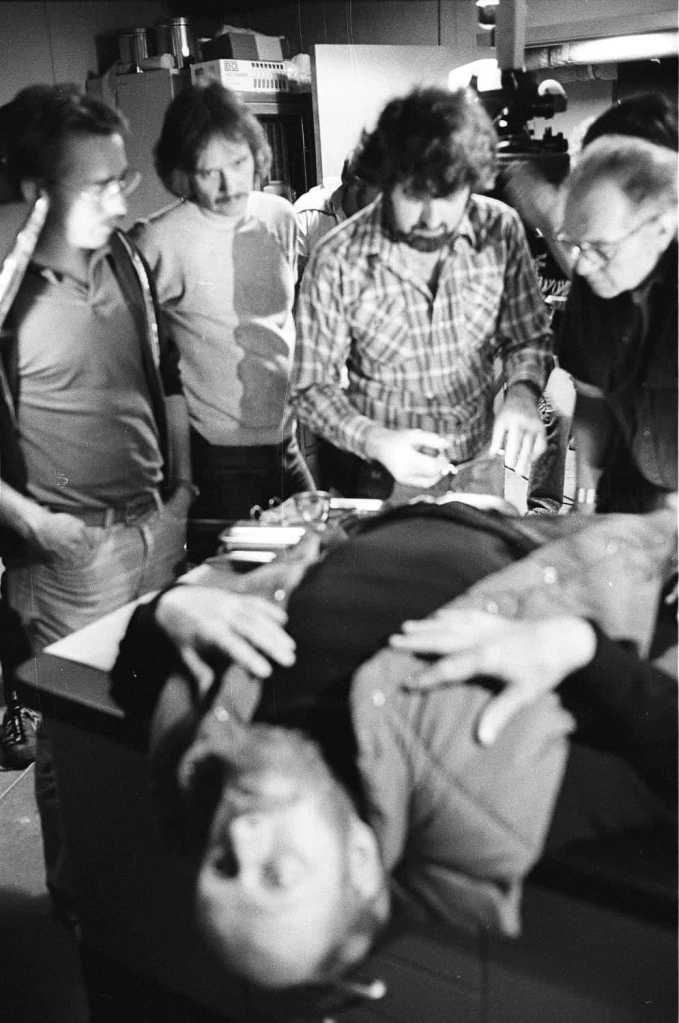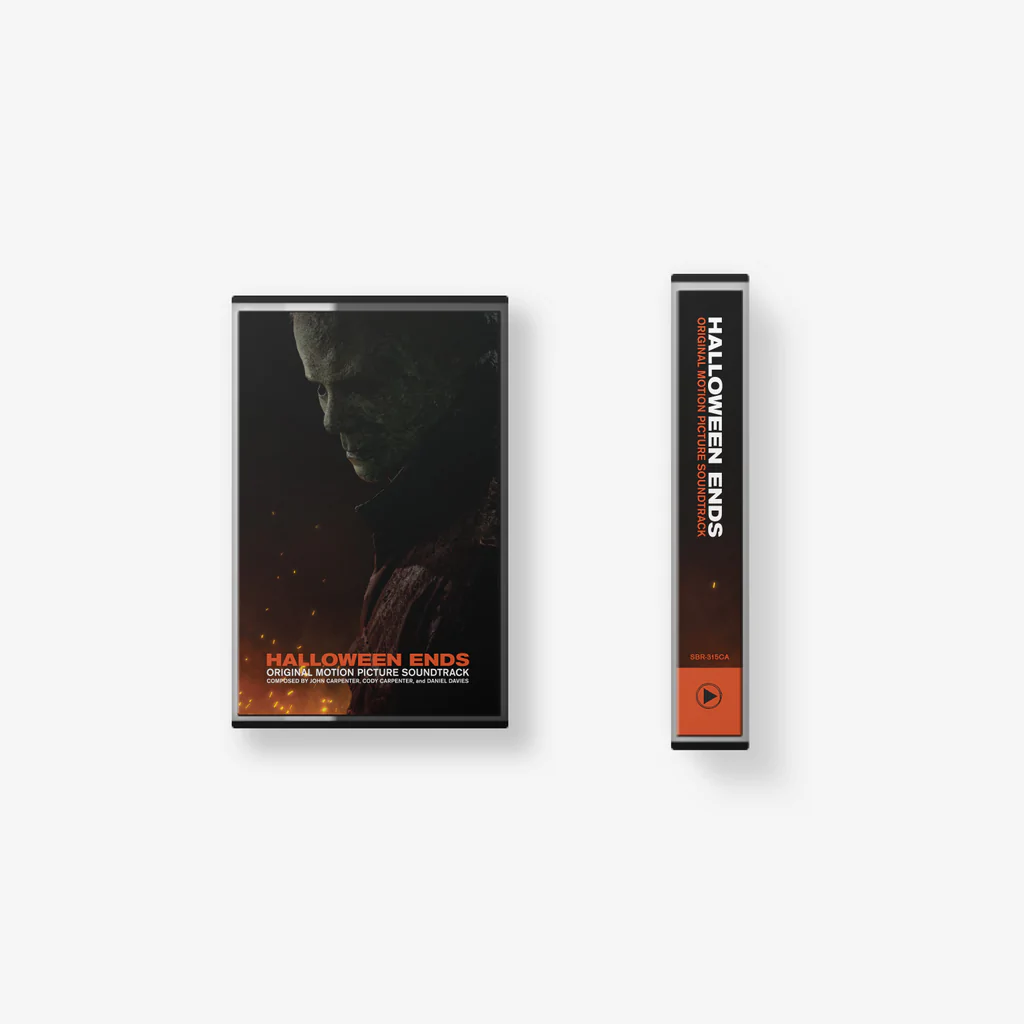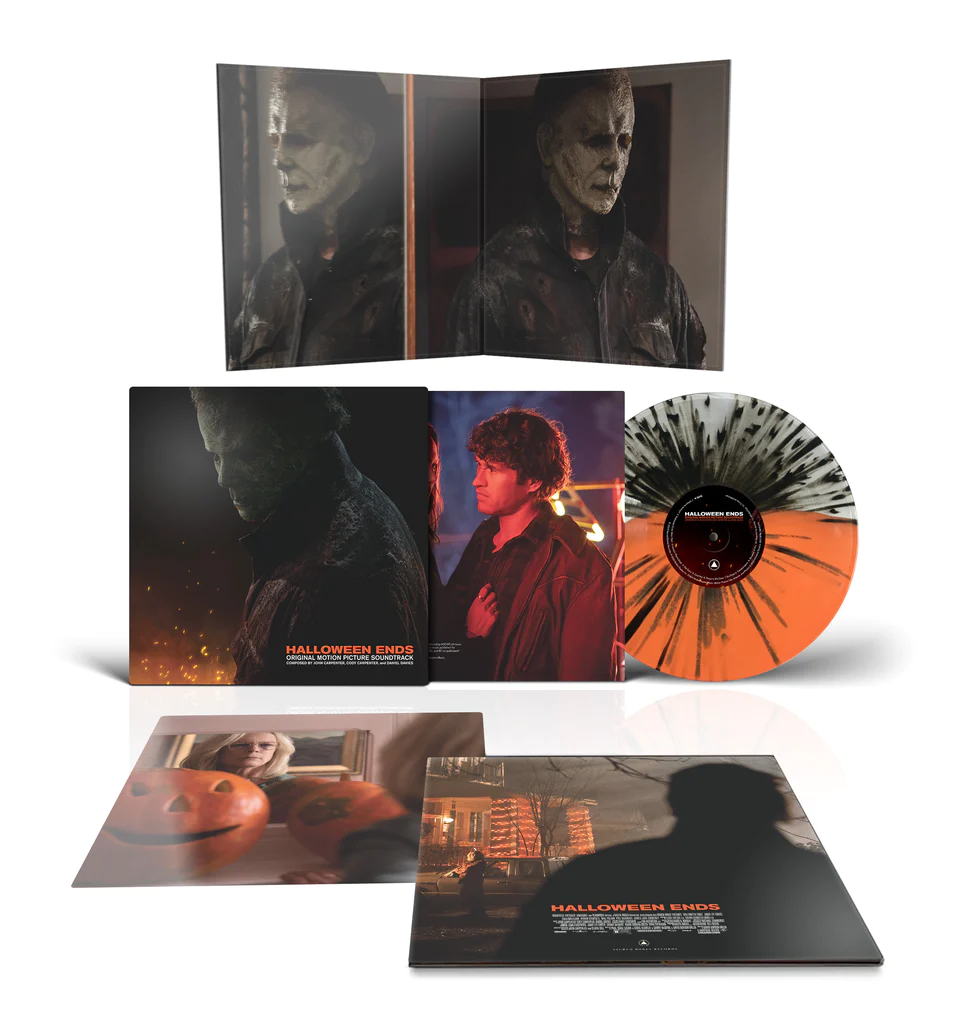It’s hard to imagine a John Carpenter film without hearing its coinciding score in your head, most of which he either composed or co-composed himself and most of which feature synthesizers.
The inclusion of synths in his film scores helped validate the instrument as a serious compositional tool. With films like Assault on Precinct 13, The Thing, Christine, They Live, Escape from NY, Halloween and more, his artistry in general has influenced a whole generation of filmmakers and composers (James Cameron, Quentin Tarantino, Guillermo del Toro and Hans Zimmer, just to name a few).
Below, the legend and quintessential master of horror talks about the first time he heard a synthesizer, video games and more.
Without further ado...

Synth History: Do you remember the first time you heard a synthesizer?
John Carpenter: I think I first heard it on Switched-on-Bach long ago. And I mean, it was interesting. It's not what I got excited about, but it was interesting. And I thought, well, you know what? This could turn out to be something here. But I don't know if that was the first, I heard a movie score that was all electronic. It was called Forbidden Planet and it was astonishing to me. Now, it wasn't synthesizers per se, but it was a lot of relays and a lot of electronic stuff. So maybe that was the first.
Synth History: What was it about synths that made you want to include them in your films?
John Carpenter: Well, finally when I got around to doing that, the synthesizer was actually a synthesizer. You could sound big with just the keyboard. In other words, you could sound and have more of an orchestral feel, rather than just a simple keyboard. And I thought "Oh, that's great. That's just what I need." Because I started in film school, when we just didn't have any money for scores, and so I would do them. It kind of carried down to the low budget filmmaking. We didn't have any money for scores, so I did them. Not that I was great, but I could do them and I could be effective with simple means.
Synth History: How did how did you meet your collaborator Dan Wyman?
John Carpenter: Dan Wyman was the synthesizer teacher at USC, so he had his own synths. And I forget who introduced us, but he had done a lot of synth work on Apocalypse Now. It [the score] sounds very synth-y, but it was grand. You know? It was grand sounding. So I thought well, what the hell, Dan is there with a lot of synths, let me try playing, that was Assault on Precinct 13 and then Halloween. These were old synthesizers where you had to tune them up every time you used them. So it was pretty crude back then.
Synth History: What do you think of older analog synths compared to software synths, was it was easier to write when you had limitations, or is it easier to write now when every sound is at your fingertips?
John Carpenter: Well, I mean, there's no comparison. It sounds wonderful [now]. It's not every sound, but a lot of sounds are at my fingertips. I liked the way you put it. But today sounds better, it sounds gigantic. It all still boils down to the keyboards. So you're operating on a keyboard, which I was in those days and I am these days.

Synth History: What are some of your favorite synthesizers?
John Carpenter: I love the Korg. The Korg Triton is an astonishing synthesizer. I think the computer software programs are the best. They’re great and I have nothing against them. But anyway, I would say probably the Korg opened my eyes to what synths could do.
Synth History: There are these really awesome photos of you and Alan Howarth with a Prophet synth and stuff, at a studio called PI West. Can you tell me about Pi West, what it was like?
John Carpenter: Oh yeah, that was just his house! He had a bunch of synths in his house is all.
Synth History: So cool!
John Carpenter: Yeah. Alan did special effects. He did a lot of electronic effects for movies, like he did The Hunt for Red October, for example. A submarine moving underwater. He would provide the whoosh sound. I would utilize his synths and it was great. I'd ask him for something that sounds like strings. He would fuck around a little bit and then there was something that sounded like strings, so it worked out OK.
[Some of the synths at Pi West included a Sequential Circuits Prophet 5 Rev3, a Prophet 10, an ARP Quadra, ARP Avatar, ARP Sequencer, an Oberheim Four Voice, and an Emulator 1.]

Synth History: What was it like working with Ennio Morricone?
John Carpenter: A whole different ballgame, you know, he was a maestro, he was incredible. What a lovely, lovely man. He was great. He didn't speak much English and I didn't speak the Italian language so we had interpreters. But oh, I loved what he did for me. I can't speak highly enough about it!
Synth History: I know this next question might be a tough one to answer, but out of all your scores, do you have any favorites?
John Carpenter: No, you know, each one was a progression. The music got better. I got better. And I can't pick one. I like them all. Just a shitty answer, isn't it?
Synth History: It's a good answer!
John Carpenter: I know it's not very good but It's the truth.
Synth History: When writing a score do you think less is more?
John Carpenter: Well, less as less. Scoring all depends on the story. The movie itself. So what's the image in front of you? That's how it all starts. That's always how it starts. So that's what I'm focused on.
Synth History: What do you think it is about a deep, dark sounding baseline that gives you a sense of dread?
John Carpenter: Good question. I don't know, but it just does. I suppose in other hands it could sound like a children's song, but it's just a dark sound and moody. Just great stuff. But I love dark sounding synths, bass synths, I love them.
Because I was a bass player in a Rock n Roll band. That's why!
Synth History: Whoah tell me about that!
John Carpenter: No, no, that was millions of years ago.

Synth History: Ok. I know you've performed your scores live. Do you enjoy performing live?
John Carpenter: I loved it. At first I had stage fright and that comes from an experience I had in high school, doing a play. I was on stage, I went up and I forgot my lines. Right there in front of the entire student body, there I was standing. That was a trauma that I had to overcome. But once I did, I just embraced playing live. It was awesome, I wouldn't trade it for the world.
Synth History: Do you think you'll do it again?
John Carpenter: You know, we've talked about it. I'm an older guy now, I'm gonna be 74 this January. That's old [laughs], that's an old man. The travel is one thing, but maybe, I'd love to. Yeah. We've talked about it.
Synth History: Do you have any advice, not necessarily for a musician or filmmaker per se, but for anybody in the arts, especially approaching it DIY, how do you start and how do you keep going?
John Carpenter: Well, first, it's all inside of you. Don't look outside for help. You've got to develop it inside of you. Your talent, what you love, you've got to dedicate yourself to it, and fall in love with it and it's got to be your life. Just keep keep at it and good things will come. Like my father once told me, the opportunities will come along for you, just make sure you're ready for it.
Synth History: Last question, I heard that you play video games.
John Carpenter: I do, I love them.
Synth History: What are some of your favorites?
John Carpenter: Well, you name it. I started back with Sonic the Hedgehog. Remember that game?
Synth History: Yeah, I remember that one.
John Carpenter: I loved that game. That's when I got into them and my son got me hooked on games. Now I play, let's see. Horizon Forbidden West. Isn't that a great game? And I'm a big fan and a friend of Ashly Burch who does the voice. I love the Borderlands games. I love Fallout 76. Fallout 3, I love that. But then I love to play Crash Bandicoot. Ratchet and Clank, I love that. It's all over the place.
Synth History: That's so awesome. Do you ever play any horror games?
John Carpenter: I have.
Synth History: Do they scare you at all or...
John Carpenter: No. No, no, no. Well... yeah, okay.
There's a game called Dead Space. So you're in a room and you know these monsters are going to attack you and I just get so tense waiting for it. And all of the sudden they're there, ahhh [yells]! Then I jump like a kid, I love it. There's a new Dead Space coming out, I can't wait to see what they've done with it.
John Carpenter: Don't you like horror games?
Synth History: I love horror games. I like this game called Observer, which is pretty neat. Have you ever played Bioshock?
John Carpenter: Oh, hell yes.
Synth History: That ones pretty scary.
John Carpenter: I've played that one many times. I didn't care for the last one up in the air. I thought it was ridiculous. The first one and the second one, you can't knock those old games, they're great.

The thirteenth installment of the Halloween franchise, Halloween Ends, comes out October 14th! The score is composed by John Carpenter, Cody Carpenter and Daniel Davies. A few different limited edition vinyls are available via Sacred Bones Records, so make sure to head over there after reading this!
Synth History Exclusive.




















